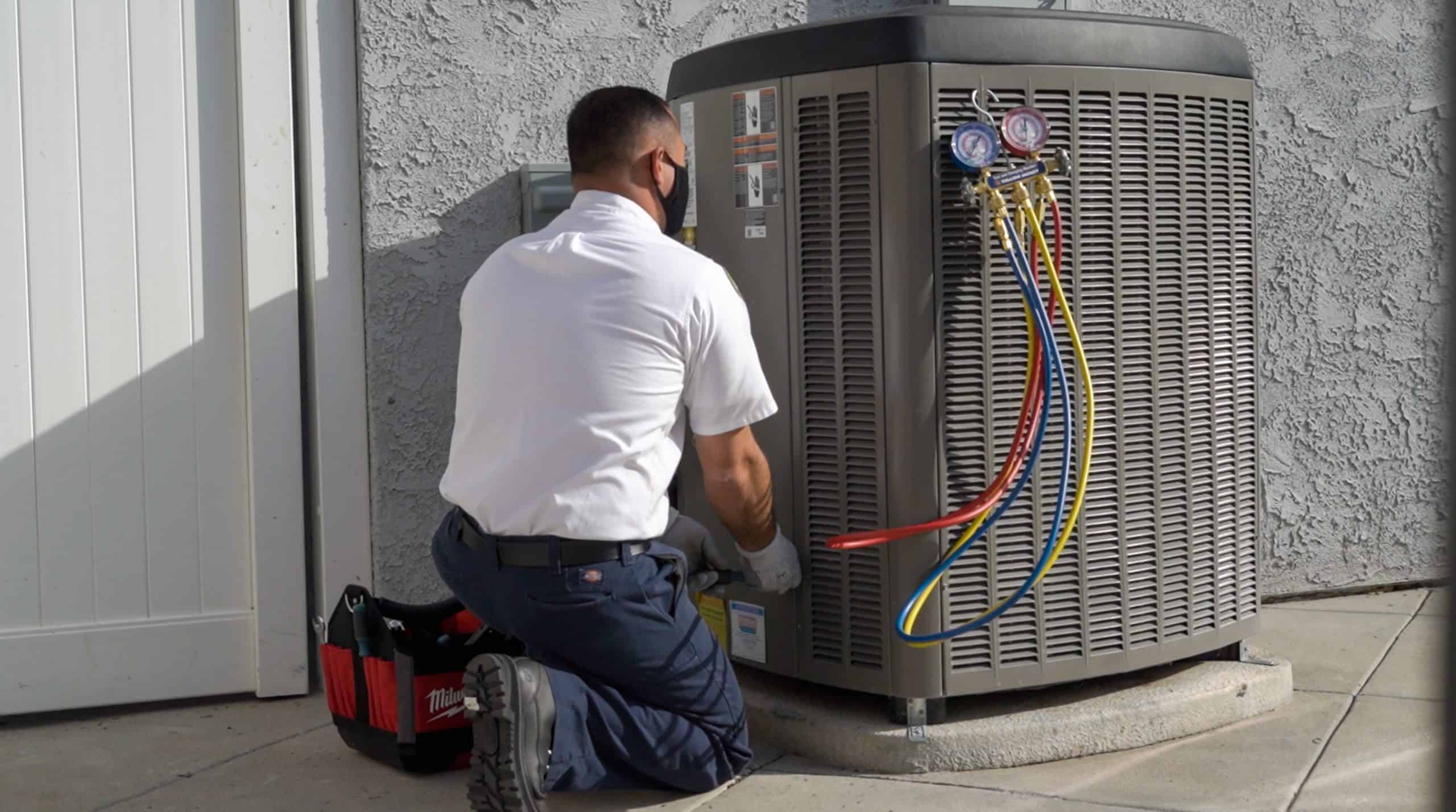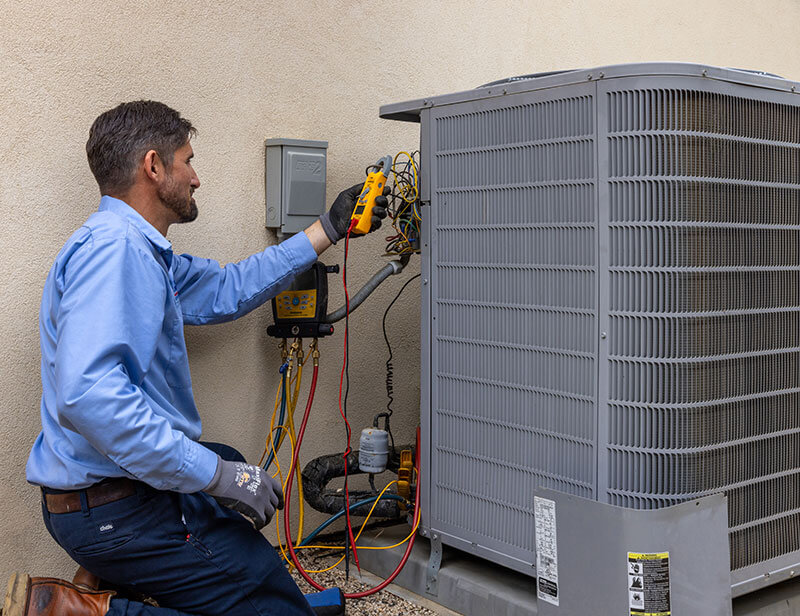Browsing A/c Upgrades: Modern Solutions for Improved Comfort and Energy Financial Savings
In today's quickly evolving landscape of home modern technology, navigating HVAC upgrades needs a calculated strategy to harness both enhanced comfort and significant energy financial savings. The intro of smart thermostats and zoned systems has changed temperature control, using customized solutions that reduce power waste.
Smart Thermostat Innovations
In the quickly progressing landscape of home automation, wise thermostat developments have arised as a foundation of contemporary Heating and cooling systems. This results in significant power cost savings and enhanced convenience, lining up with the enhancing need for lasting living services.
Among the most significant functions of clever thermostats is their ability to adapt and find out to user preferences and regimens. By analyzing actions and patterns, these devices immediately readjust settings to make sure optimum comfort while reducing power intake. Furthermore, remote accessibility via mobile phone applications permits customers to keep an eye on and regulate their heating and cooling systems from anywhere, supplying adaptability and peace of mind.
Assimilation with various other wise home devices and systems additionally enhances the capacities of clever thermostats. Compatibility with voice assistants like Amazon Alexa or Google Assistant enables hands-free operation, making it simpler than ever to keep desired interior environments. As modern technology proceeds to breakthrough, smart thermostats are set to play an increasingly important duty in developing comfy and energy-efficient living settings.
Zoned Heating & Cooling
While clever thermostats revolutionize individual temperature control, zoned heating & cooling systems offer a more tailored approach to managing interior environments by separating a home right into unique areas, each with its own thermostat. This division allows home owners to customize the temperature level in each area according to details demands and preferences, boosting both convenience and energy effectiveness. In a zoned system, dampers within the ductwork can open or shut to direct air flow specifically where required.
Zoned systems give significant advantages, specifically in bigger homes or multi-story buildings where temperature level disparities prevail. By resolving these variants, property owners can reduce energy waste and guarantee regular comfort throughout the home. During summer season, upper floorings commonly require even more air conditioning due to warm rising, while cellars may require less. A zoned system can change accordingly, lowering unnecessary power consumption.
Additionally, zoned heating and cooling down systems can lead to reduced utility bills. By just conditioning occupied rooms, these systems reduce energy use, hence adding to set you back financial savings with time. In addition, they offer adaptability, enabling different member of the family to set their recommended temperatures in their respective areas. This customization boosts overall contentment and efficiency without jeopardizing on convenience.
Energy-Efficient Heating And Cooling Systems
Current advancements in technology have resulted in the advancement of extremely energy-efficient cooling and heating devices that significantly decrease energy consumption while preserving ideal interior convenience. These innovative systems leverage advanced attributes such as variable rate compressors, clever thermostats, and progressed filtering innovations to improve performance and efficiency. Variable speed compressors readjust their procedure to the exact heating or cooling need, lowering power waste and supplying constant indoor temperature levels.
Energy-efficient cooling and heating units also integrate smart thermostats, which allow customers to program and from another location regulate their systems through mobile phones. These thermostats learn household patterns to maximize home heating and cooling schedules, hence lowering unnecessary energy usage. Furthermore, advanced purification systems enhance indoor air top quality while keeping energy efficiency, getting rid of particulates without overburdening the system.
The application of energy-efficient a/c units can cause considerable cost financial savings on energy bills and a decrease in carbon footprint, aligning with the expanding consumer demand for environment-friendly solutions. Numerous modern-day units qualify for government motivations and refunds, making the investment in energy-efficient technology more easily accessible. Consequently, updating to an energy-efficient HVAC system is a prudent selection for both domestic and business homes seeking lasting convenience and sustainability.
Sustainable HVAC Practices

Moreover, routine maintenance plays an essential function in maintaining a/c efficiency. Regular inspections and prompt repairs protect against power loss due to damaged parts or system breakdowns. Using green refrigerants with reduced worldwide warming possibility (GWP) is an additional practice getting grip, as traditional cooling agents are phased out because of their ecological influence.
Additionally, carrying out warmth recovery systems can enhance sustainability by catching waste warm and repurposing it for other home heating demands. This practice not only saves power yet likewise minimizes functional prices. Integrating renewable energy sources, such as solar panels, can additionally lower dependence on non-renewable energy, contributing to an extra sustainable HVAC procedure and total power strategy.

Future A/c Fads

Arising technologies and progressing societal demands are shaping the landscape of future heating and cooling fads, driving the sector towards smarter, more effective solutions. One significant pattern is the combination of expert system (AI) and the Net of Things (IoT) into cooling and heating systems. These technologies enable predictive upkeep and real-time efficiency surveillance, enabling optimized energy use and lowered operational prices. AI-driven analytics can anticipate system failures prior to they Full Report take place, minimizing downtime and enhancing system reliability.
Another trend is the growing focus on decarbonization and renewable resource assimilation. As governments globally set enthusiastic carbon reduction targets, HVAC systems are significantly being developed to integrate renewable resource resources such as geothermal and solar. This shift not only decreases carbon footprints yet likewise lines up with wider sustainability goals.
Additionally, the emphasis on interior air quality (IAQ) is increasing. Advanced filtering systems and air purifiers equipped with HEPA and UV-C modern technology are coming to be requirement in new cooling and heating installments, especially in commercial spaces, to make certain healthier environments.
Final Thought
Accepting modern-day HVAC options is essential for achieving optimum convenience and power financial savings in residential spaces. Developments in clever thermostats and zoned home heating and cooling systems enable exact temperature control, minimizing energy waste.

As federal governments around the world set ambitious carbon reduction targets, HVAC systems are progressively being designed to incorporate sustainable power sources such as geothermal and solar. - Electrician in Brownwood TX